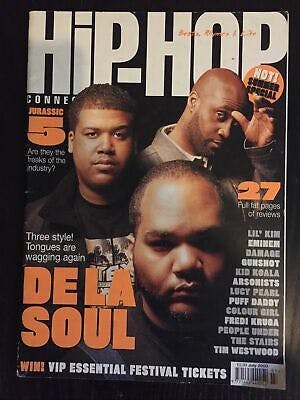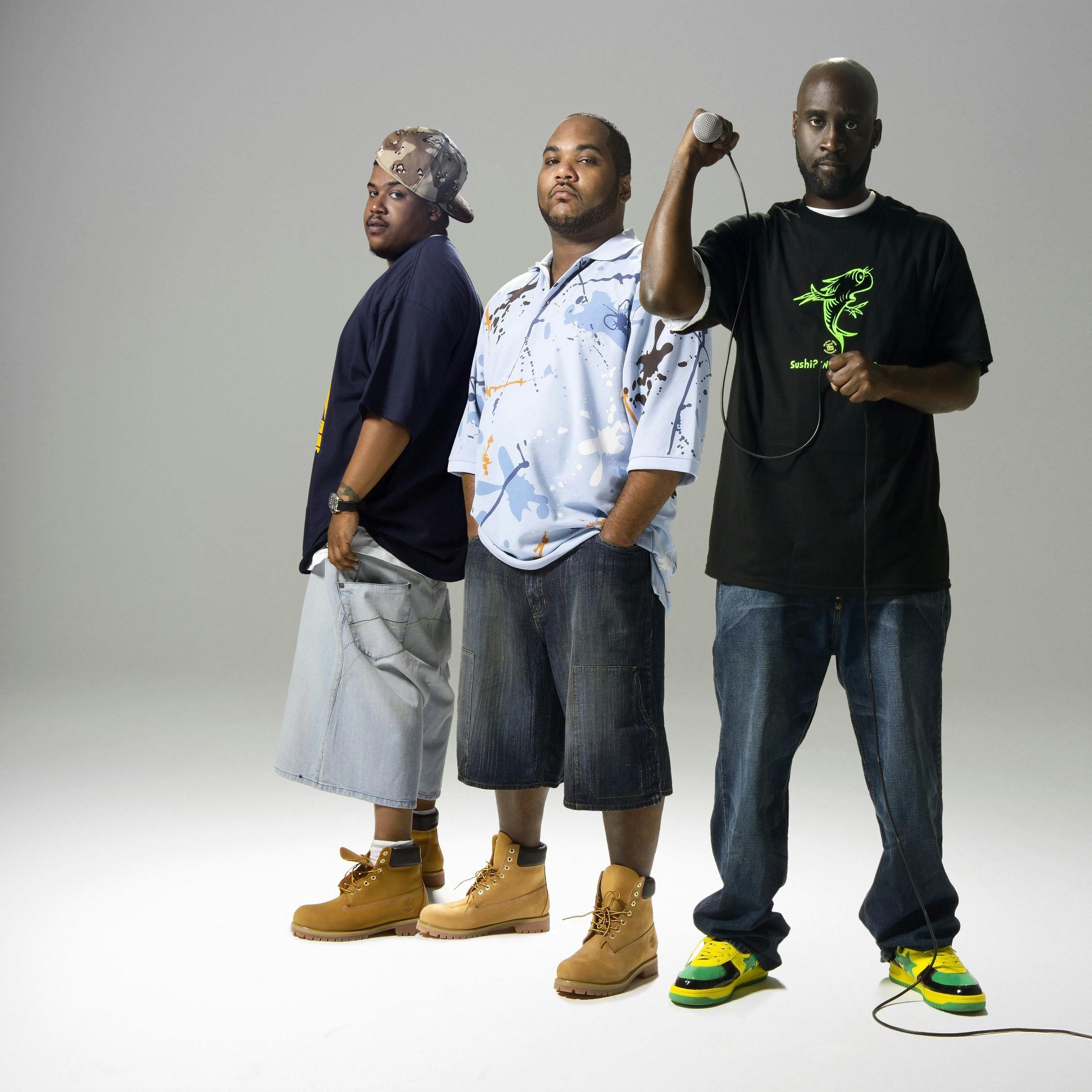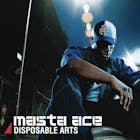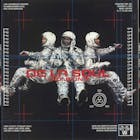
De La Soul opened the 2000s as the longest running act from the Native Tongues.
It had been four years since their critically acclaimed but still somehow underrated fourth album Stakes Is High, and De La was looking to reinvigorate themselves creatively. The idea that the group decided upon was undoubtedly ambitious: a concept album trilogy. But it was initially an idea that none of them took seriously.
"The whole trilogy thing really was just one big, dumb joke," Posdnous said to the Dallas Observer in 2000. "We would always hear about some rock [band] putting out this or that double album, so we'd be together, and I'd say, 'De La always does things different. Let's make a triple album.'"
But the thought lingered. "I couldn't get it out of my head, so I approached the guys and told them we should do this for real, which they were all for once they thought about it. I mean, we always like to top ourselves. This seemed like the best way to do it."
The group also reached back to some of their early career goofball-ism (the "Ghost Weed" skits on ...Mosaic Thump are forever hilarious) while embracing the heightened commentary and craftsmanship of Stakes... And the group collaborated with a broad cross-section of like-minded producers and high profile guest artists.

The result was one of the best albums of the early 2000s, as Pos, Dave and Maseo teamed with J. Dilla, Rockwilder, Prince Paul, Busta Rhymes, Tha Alkaholiks, Redman and more for what was intended to be the first in a trilogy called Art Official Intelligence. Fans never got that trilogy, (AOI: Bionix arrived in 2001, but a third DJ-focused album never materialized) but they nonetheless got a classic in this first installment.
Though undoubtedly filtered through the group's maturity and high craftsmanship standards, Art Official Intelligence: Mosaic Thump sees De La Soul making a return to some of their early career goofiness. Pos, Maseo and Dave seem a little less preoccupied with the "state of Hip-Hop" and sound like De La just being De La once again. For all of it's greatness, Stakes... was a mostly straight-faced look at where things were going as the rap game seemed obsessed with platinum plaques and bicoastal beefs. But a lot had happened since 1996.
The "Shiny Suit Era" had dominated the late 1990s, and the breakup of A Tribe Called Quest devastated fans in 1998. But that same year had also seen a surge in eclectic, Native Tongues-inspired artists like Black Star and Slum Village, with artists like The Roots and Common suddenly seeing mainstream success after year's branded "underground" or "backpacker" rap. De La Soul was never neatly sequestered into such lanes, and in 2000, the trio was as broad as ever. And on ...Mosaic Thump, they got to showcase just how diverse their palette can be.
"U Can Do (Life)" is the first actual song and a perfect highlight of how well Dave and Pos compliment each other. Their vocal qualities are more similar in nature than, say, Q-Tip and Phife. They share the last 16 bars towards the end. A lot of great emcee pairings are great because they're polar opposites but Pos and Dave complement each other because they're so similar and by blending so well. They both are remarkably consistent rhymers and this is probably my favorite song on the album. "My Writes" (featuring Tha Alkaholiks and Xzibit)" has the energy of a classic posse cut.
Lead single "Oooh." with Redman brings back some of the whimsy of early De La. The group always had catchy songs that were great for the radio, and this isn't all that different than their other Prince Paul-related hits. And "Wizard Of Oz"-themed video was a staple on music channels.
DROP YOUR EMAIL
TO STAY IN THE KNOW

The whole trilogy thing really was just one big, dumb joke..."
- Posdnous, (Dallas Observer, 2000)
"Thru Ya City" with D.V. Alias Khrist was also a single, albeit sans music video. J DIlla and De La over a Lovin' Spoonful sample. This is just a super infectious track that sounds perfect for radio; the hookier, slicker side of J. Dilla productions. Busta Rhymes shows up for the rabble rousing "I.C. Y'All" a banger from Rockwilder. "View" is another track the group produced themselves and it's another album highlight. Over a flip of Roland Kirk, Pos and Dave both bring their A game on a head-nodder. The laid-back rhyming shows, once again, just how great their chemistry is.
Indeed assists on "Set The Mood" on a track produced by Da Bush Babees. It leads into another stellar "Ghost Weed" skits, which are some of the best of the era.
It's hard to understand why a song like the Chaka Khan featuring "All Good?" wasn't even bigger in the early '00s. It has all the elements working in its favor.
The song remains one of De La Soul's best singles and the video was another one that found itself in steady rotation across MTV and BET. Proof that De La always had a gift for commercial fare, despite their sometimes ill-placed reputation as "backpack" rap in some quarters.
But on a song like "Declaration," the trio once again reminds you that they are just as at home on no-frills Hip-Hop. The brilliant, thoughtful lyricism sounds so effortless here--arguably the ...Mosaic Thump song that sounds the most like their Stakes Is High era. Two-thirds of the Beastie Boys show up on "Squat!" Mike D and Ad-Rock bring their infectious energy on this record; as both acts seem to revel in their stature as two of Hip-Hop's longest running and most unapologetically "left field" acts.
Songs like "Words From The Chief Rocker" and "Copa (Cabanga)" find De La stretching out musically, incorporating a broad spectrum from classic early rap to Latin flavors into the mix. Producer Supa Dave West is the group's sounding board and secret weapon throughout ...Mosaic Thump. Prince Paul will always get top-billing as De La Soul's most legendary collaborator, but West plays a major role in the group's longevity and success. And "Foolin'" might be the most "vibey" song here; the groove seeps through the spaces on another one of those songs that feels like it could only come from De La's unique brand of understated perfection.

Throughout the album the group's sense of humor and gift for storytelling are both evident. Those qualities have always made De La who they are. Songs like "The Art of Getting Jumped" is brilliant, honest and hilarious storytelling. And "U Don't Wanna B.D.S." closes things with a feature from NYC rap legend Freddie Foxxx, one of rap's all-time great shit-talkers.
It was threatening to become something of a pattern for De La Soul post-1992 to release albums widely acclaimed by critics but barely moving the needle commercially. But on Art Official Intelligence: Mosaic Thump De La Soul had managed to prove they'd remained a vital, viable group for over a decade at this point, and mainstream audiences were paying attention. Singles "Oooh." and "All Good?" were major hits on the Rap charts, bigger than anything De La had seen since the early 1990s. And the group landed a Grammy nomination for Best Rap Performance By A Duo or Group.
Perhaps even more significant than any expected renewal of the group's commercial viability was the creative spark of the times. De La Soul's fifth album was part of a wave of brilliant releases that also includes Common's Like Water For Chocolate and Slum Village's Fantastic, Vol. 2--albums that set off the early 2000s for fans of Hip-Hop's more left-leaning sensibilities. The creative highs of the album showed that the group had no intention, and no reason, to slow down. The world just needed to catch the fuck up.
But the album didn't restore Tommy Boy Music's faith in De La Soul. ...Mosaic Thump ultimately failed to reach gold status, and the label slowed promotion on the album and seemed to also lose faith in it's follow-up, 2001s AOI: Bionix. The third installment of the planned trilogy never materialized and De La Soul's relationship with Tommy Boy ended.






